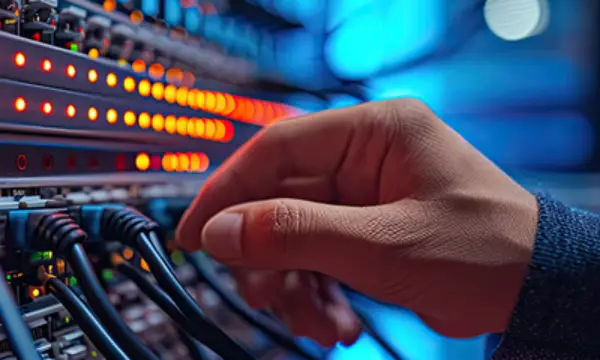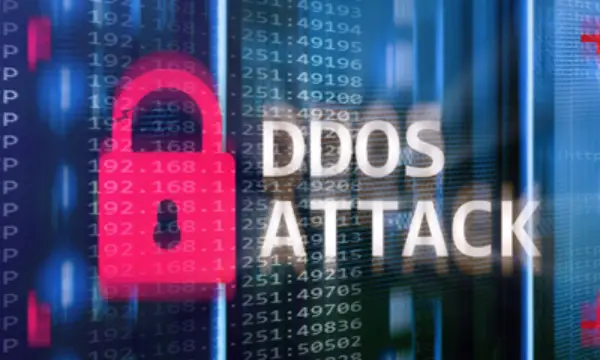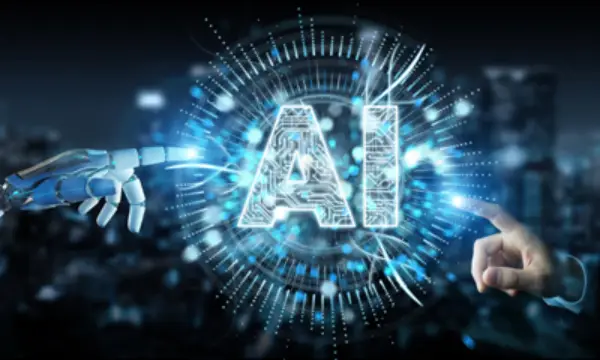- About
- Network
- Community
- Initiatives
- News
- Events
- Blog
- Publications
Blog: Category Archives:
CENIC Internships: Working with Higher Ed to Create a Skilled Workforce for the Future of Networking
Categories CCCs The CENIC Community
CENIC's internship program helps talented engineering students in the CA community colleges learn about network engineering and gain real-world experience that give their resumes a valuable glow-up.
CENIC AIR and Your Campus: From Concept to Connection
Tags CENIC AIR
Learn more about how to get started thinking about how your campus can connect to and use the CENIC AI Resource.
The Easy Button for DDoS Attacks: Fast, Convenient, Cost-Effective Mitigation for CENIC Member Institutions
Tags ddos
San Diego Community College District was able to mitigate a DNS laundering attack quickly and cost-effectively thanks to the CENIC NOC and then join CENIC’s DDoS Mitigation Service.
The Venue is the World: CENIC Helps SFJAZZ Share Music with Everyone
Tags sfjazz
Learn how Mount Allen shares musical experiences with the public through his role at San Francisco Jazz (SFJAZZ), which uses CENIC infrastructure to livestream performances to classrooms and libraries across the state.
The Strength of Community in Research and Education Security Trends
Categories Security
Tags privacy
A panel of experts addressed safeguarding academic ecosystems. The hour-long discussion tackled current threats, incident response, data privacy and mandatory reporting requirements.
Digital Navigators at California’s Public Libraries Help Bridge Broadband Divide
Categories Libraries Equity & Access Tribal
Libraries educate Californians on how to navigate the Internet, providing access to employment and training, telehealth, and more. To ensure that patrons can use these opportunities, libraries also provide digital navigators to assist patrons in acquiring digital skills.
San Diego State University’s VERNE: Applying the CENIC AI Resource to Multi-disciplinary Instruction
Categories AI/Machine Learning CSU The CENIC Community
Tags CENIC AIR
SDSU has created a computing cluster for instruction operating over CENIC AIR called the VERNE, offering advanced graphical processing units (GPUs) and storage made available via JupyterHub, an easy-to-use web-based environment for accessing these resources.
Adaptive Teaching and Learning: Artificial Intelligence in the K-12 Environment
Tags ai artificial intelligence k12
VCOE's Julie Judd and Dana Thompson address using AI in the K12 classroom at CENIC's Biennial conference "The Right Connection," touching on adaptive teaching, administration, and privacy.
CENIC Network Automation Update: New Network-Source-of-Truth Tool Implemented
Categories RENS & NRENS
Tags automation
CENIC has evaluated and worked with various DCIM platforms to meet this need and concluded that NetBox was the best fit for its environment as its Network Source of Truth.
Connecting California: Exploring the State of Middle- and Last-mile Broadband Funding
Categories Equity & Access
Tags conference fun
All CENIC member Institutions, enjoy the opportunities made possible by broadband availability, access, and adoption. The challenges associated with the work to bring broadband to middle- and last-mile communities can be almost as large as the opportunities broadband offers. Valuable advice to overcome these challenges and make the most of the opportunities was highlighted by this expert panel.










